- Home
- Sharyn McCrumb
Zombies of the Gene Pool
Zombies of the Gene Pool Read online
Zombies of the Gene Pool
Sharyn Mccrumb
"A delightful sequel to Bimbos of the Death Sun" (Ellery Queen's Mystery Magazine) by the Edgar Award-winning author of the beloved Elizabeth MacPherson mysteries. When murder strikes at the reunion of a SF fan club, it falls to writer Jay Omega to turn sleuth-and separate science fiction from fact to catch the killer.
Sharyn McCrumb
Zombies of the Gene Pool
The second book in the Bimbos of the Death Sun series, 1992
Chapter 1
Even death will not release you.
An expression of the Los Angeles Science Fiction Society, ca. 1949
Jay Omega decided to wait until the shouting stopped before he knocked. Against his better judgment he had left the happy anarchy of the Electrical Engineering building and ventured into the English department to see if Marion wanted to go to dinner, but the sounds coming from her office indicated that Dr. Marion Farley was otherwise engaged. The typed index card on the door announced that she had office hours from 4 to 5 p.m., so Jay assumed that she was in conference with a student. He had put his ear to her office door to see if she was nearly finished and had heard the following exchange.
"This is a world literature class, not a science fiction class!"
"But-"
"And I can't believe that you actually wrote a paper comparing Joseph Conrad to Robert Silverberg!"
"But, Dr. Farley, when I read Heart of Darkness, I recognized Downward to the Earth almost exac-"
"And you accused Joseph Conrad of plagiarism!"
Jay Omega sighed and walked away. Marion was going to be a while. He wondered how late their dinner date was likely to be. Jay Omega and Marion Farley had little in common besides the fact that they were both carbon-based life forms, but despite the differences in temperament, interests, and income, they had been a couple for two years now. The relationship began when Jay ventured into the English department with the manuscript of his first book, and Marion asked if he had a note from his adviser. He still looked young for a Ph.D., and his jeans from the tenth grade did still fit, though Marion had made him throw them away. He supposed he had changed for the better since then. Marion had once seen his high school yearbook photo and said, "You looked like a mosquito." Now he had contact lenses instead of Coke-bottle glasses, and his brown hair was cut in a longer, more flattering style. They had both blossomed after adolescence. Marion had endured high school as a fat and friendless intellectual; now she was a slender, dark-haired Ph.D. who ran in the local marathons and sparred with the women's fencing team. It was no coincidence that the poster above her desk featured The Avengers' Emma Peel, Marion's role model in adolescence.
Jay looked down at his khaki work pants and plaid shirt. He still didn't dress like the dapper young professors in English, but Marion had given up on him in that department. He didn't wear power ties, but he kept her decrepit car running, which more than made up for it. Jay and Marion were in a romantic holding pattern, waiting to see if they would both get tenure so that neither would have to leave the university and start over elsewhere.
Jay ventured back to the office door. She was still at it. He sighed. If things dragged on for too long, he could always go in search of a snack machine, but since most of the English professors seemed to be on a health and fitness kick, he wasn't even sure that they had a snack machine, and if they did, it might offer such arcane items as wheat germ and carob candy bars. Long ago
he decided that the English department was about as alien as anything Robert Silverberg could come up with. Even after several years' association with one of their assistant professors, he didn't understand their tribal customs. Or their bulletin boards. Every now and then he would come in and read the notices while he was waiting for Marion, just to see if any literary culture had worn off on him. Apparently, it hadn't.
"warren writes better than anne."
Now what did that mean? Jay Omega turned to a pink-haired young woman in overalls who was pinning a Literary Lions notice over the campus newspaper clipping announcing that Professor Byron Snipes had just been published in the avant-garde (which Marion said was pronounced "mimeographed") literary magazine, The Maggots Digest.
Jay knew about the Literary Lions. They were a group of English instructors and other town writers who gave readings every Sunday afternoon in the New Age Cafe. Marion had dragged him there once when her office mate Toni Richardson was reading from her stream-of-consciousness novel about a Labrador retriever who thought it was Virginia Woolf. Every time the dog had to go into the water to retrieve a duck, there would be pages and pages of inner dialogue over whether or not it would get back out. Jay didn't understand it at all, but everyone else had told Toni that it was very experimental and definitely not accessible. (Marion said that "experimental" meant writing in the present tense, and "not accessible" meant that they didn't understand it either.)
Jay Omega's opinion was not solicited. He was the only nationally published author in town, but since he had written a science fiction novel called Bimbos of the Death Sun, he was not invited to read with the mineral water and tofu crowd at the New Age Cafe. Not even for their four-dollar beans and rice fund raisers in support of El Salvador. (Or was it against support in El Salvador?) Anyway, Jay didn't remember any Literary Lions called Warren or Anne. So what was that about?
"Excuse me," he said, pointing to the hand-lettered graffiti. "Could you tell me what that means?"
The pink lady glanced at the sign. "Warren Writes Better Than Anne." She nodded, with a frosty smile. "Beatty, of course. Only they spell it differently." Seeing that he still looked blank, she explained kindly, "Warren Beatty is Shirley MacLaine's little brother."
Before he could explain that it was Anne he had never heard of, she had walked away with her sheaf of notices, and another student was tugging at his sleeve. "Dr. Mega, I'm glad I ran into you!"
The tall red-headed guy with a Starfleet patch on his jacket looked familiar. What was that kid's name? Second row, first seat in engineering fundamentals. Jay managed a feeble grin, hoping he wasn't about to be asked for a reference.
The young man set his books on top of the covered trash can and chattered on, happily unaware of his anonymity. "When I was home on spring break, I tried to buy a copy of your book for my high school physics teacher, but our local bookstore said it wasn't on their order list."
Dr. James Owens Mega-aka science fiction author Jay Omega -heaved a mighty sigh of resignation. "Did you look under G?"
"No. Is that a new one? I wanted your first book-Bimbos of the Death Sun."
"I know. It's listed under G. For Galactic Wonders #2: Bimbos of the Death Sun. The first part is the series title. Alien Books lists all their titles that way. The first one in the series is Galactic Wonders #1: Betrayal at Byzantium by Susan Shwartz." She's not happy about it either, he finished silently.
Several months earlier, when they found out about this nationwide blunder, Marion had remarked, "This is the only book in history that requires a password in order to purchase it!"
The student was looking at him as if he were crazy. "Under G," he repeated carefully. "Uhh-I've taken some marketing courses, Dr. Mega, and I have to tell you, that doesn't sound like a good idea."
Jay Omega nodded sadly. "So my royalty statements would indicate."
It seemed to Jay Omega that he had the worst of both worlds-another reason that the English department made him uneasy. The way he figured it, an author could either go for respect in the literary world-critical reviews in prestigious journals, scholarly articles on one's works, small print runs at respected university presses-or he could write popular fiction and receive fan mail and big bucks. The lurid b
ikini-clad girl on the cover of Jay Omega's paperback original left no doubt in the English department as to which category his work fell into. They assumed that he was making a fortune, and that it was easy money.
Every time Marion talked him into attending a faculty party, one of her colleagues would sidle up to him, margarita in hand, and say, "You know, maybe during spring break I'll dash off a science fiction novel. I could use the extra cash."
Apparently they didn't intend to be insulting. They all thought that he was rich and lazy. Jay suspected that if he admitted to them how hard he worked and how little he made, they would simply replace their envy with contempt, so he left well enough alone.
The professorial misconception was that genre writing was easy and high-paying, and that anyone with scholarly training could do it in a matter of hours. Occasionally one of them tried. Jay Omega had been forced to read some of these dashed-off manuscripts, and he found them to be plodding exercises in obscurity. They sounded like dissertations. Finding excuses not to give out the name of his agent or his editor was beginning to require more creativity than his latest book. He was losing patience. Sooner or later one of them was going to sneer at him once too often, and he was going to say, "Look-if you really want a surefire scheme for cash from trash, forget genre fiction. Just write a long convoluted novel in the present tense with no quotation marks and sell it to a university press. Get your friends to write reviews of it in the MLA Journal, get tenure on your literary reputation, and then sit back for the rest of your life collecting a fat salary and teaching two classes a week."
Marion would kill him.
He decided that he'd better stop loitering in the halls of the English department, before one of them accosted him with a new plot summary. Perhaps he could write Marion a note asking her to meet him at his office.
"Ah, Dr. Mega! I've been meaning to speak to you."
Too late!
Jay Omega looked up, hoping that he wasn't about to be presented with another manuscript. To his relief he saw Erik Giles, empty-handed, beckoning from the door of his office. Professor Giles taught nineteenth- and early twentieth-century British literature, and as far as Jay knew, he wrote only for scholarly publications.
"I take it that Marion is busy," Giles was saying. "Why don't you come in for a cup of coffee, and you can keep an eye on her door." He raised one eyebrow. "Or at least monitor the noise level."
With a grin of considerable relief, Jay Omega hurried into Professor Giles' shabby, book-strewn office. Compared to the engineering offices, it was a Victorian parlor. (Marion once said that his office looked like the inside of a pinball machine.) He removed a stack of papers from the Goodwill armchair and sat down. Despite the clutter, it was a comfortable room, well suited to Giles himself. It had the same air of old, but still serviceable, and its genial mix of well-worn books and prints of English landscapes suggested an old-fashioned gentility indicative of an aging scholar. This, of course, was a carefully cultivated pose on the part of Erik Giles, and it served him very well. His Dickensian office, his rimless glasses, and his baggy cardigan sweaters tallied with everyone's expectations of a kindly but dull middle-aged professor of English; few people bothered to look beneath the facade.
Marion had found out the secret quite by accident, on her way to her science fiction class to lecture on the history of the genre. Four minutes late as usual, she had scurried around the corner, balancing a chin-high stack of paperbacks, and crashed into Professor Giles, who was just leaving his lit class on Kipling. The collision sent the books flying. Ever the gentleman, Erik Giles had stooped to help his colleague gather up her belongings.
"So frightfully clumsy of me," he murmured, although it had clearly been her fault.
Marion claimed all of the blame for the mishap and tottered on to her classroom. She hadn't given the incident another thought until midway through her lecture when she was discussing the writers of the early fifties. "… And one of the most visionary and lyrical of the new generation of S-F writers wrote as C. A. Stormcock, which, as I'm sure you've guessed, was a pseudonym. His major work was The Golden Gain…." She began to rummage through the stack of books in search of her copy. She found that she had acquired an edition of Kipling's poems during her collision with Professor Giles. Idly, she opened the volume at a place marked with a paperclip, half intending to save herself further embarrassment by pretending that this was the volume she sought. She looked down at a well-marked passage of "The Mine Sweepers," intrigued by a phrase in the poem.
She looked up to find thirty pairs of eyes staring at her expectantly. She resumed her search for the real book. "This landmark work, totally ignored when it was first published… it's here somewhere… illustrates the theory that… no, that's not it."
It wasn't there.
In the end, Marion bluffed her way through that part of her talk, dispensing with the reading of the death scene of Selig in chapter nine, but for the rest of the lecture, Dr. Farley was on automatic pilot. As she recited the particulars of genre history, her mind was analyzing the problem of the missing volume. She had taken it off the bookshelf in her office, and she remembered placing it in the stack…
"It is only in recent years that S-F scholars have taken any notice of Stormcock. His paperback originals were virtually ignored by the critics of the time. C. A. Stormcock was, as I said, a pen name. Many writers-especially in science fiction-used pseudonyms in those days."
"Like Jay Omega," said an engineering major.
Marion reddened, almost losing her train of thought. "Oh, yes. Our own Dr. James Owens Mega, of the electrical engineering department, writes as Jay Omega, which is a physics term-"
"Frequency times the square root of negative one," said the engineer.
Marion scowled. "I knew that."
"So what was Stormcock's real name?" someone called out. "There are several theories. One is that he did not exist, and that Curtis Phillips and the notorious Pat Malone actually wrote his works in collaboration. Others think that-"
"Is this going to be on the test?" asked a serious-faced little blonde.
Marion sighed. "No," she said. "Because, after all, we really don't know who he was." But suddenly she did.
When the chimes sounded the hour, Marion got out of the room faster than the football players. She ran down the hall and into Professor Giles' turn-of-the-century lair without bothering to knock. "Why did you take my copy of The Golden Gain?" she demanded.
He looked up from a stack of term papers, genial but apparently puzzled. "Did I?" he said mildly. "It must have got mixed with my own papers."
Marion almost wavered, but then she remembered. "You weren't carrying any papers when I ran into you."
He sighed. "Oh dear. Well, I'm afraid it isn't a very good book. Reverse alchemy, in fact-turning gold into lead. Must you include it?"
Marion looked stern. "May I have my copy back, please?" With a sheepish smile, Professor Giles reached under the stack of term papers and brought out the tattered paperback.
Marion made no move to retrieve it. "May I have it autographed, please?"
He blinked in confusion. "I beg your pardon?" Marion sat down on the arm of the easy chair. "Look," she said, holding up the volume of Kipling. "You're a Kipling scholar. God knows why, but you are. And on the frontispiece of this book, someone has written 'Stormy.' And I think I know where the name C. A. Stormcock came from. Listen to this." She turned to the page on which "The Mine Sweepers" was printed and read aloud: " 'Mines reported in the fairway,/Warn all traffic and detain./'Sent up Unity, Claribel, Assyrian, Stormcock and Golden Gain.'"
Marion snapped the book shut with an air of triumph. "I can't imagine why no one picked up on that before."
"The Stormcock and Golden Gain connection?" said Giles. "Science fiction people wouldn't catch that. They don't do much out-of-field reading. Why, the great Irish fan Walt Willis had a column once called 'The Harp That Once or Twice,' and for years fans asked each other where the title came
from."
Marion allowed herself to be diverted from her prey. "It's vaguely familiar. The harp that once through Tara's halls…"
"Exactly. Thomas Moore. An Irish poet. And no one got it!" Professor Giles smiled sadly. "Of course, this isn't literary scholarship, because neither Willis nor Stormcock matters. It's a form of Trivial Pursuit. All the same, it was well noted on your part. But it does not give you the identity of the author."
"Oh, no?" said Marion sweetly. "How about this? The main character is Selig Stone. Selig is Giles spelled backwards, and that comment you just made about 'reverse alchemy' is the punchline from the review of the novel in a fifties fanzine called Grue. Now don't try to tell me all that is a coincidence, or you'll find yourself in Locus so fast it'll make your head spin!"
He groaned. "Oh, please! Not that!"
"We thought you were dead," said Marion. "We weren't even sure you existed. Why all the secrecy?"
Erik Giles smiled sadly. "I grew up."
Chapter 2
Just like a Daugherty project, except that it will actually happen…
– FRANCIS TOWNER LANEY An expression of anticipation in Fifth Fandom
"I'm very glad you're here, Jay," Erik Giles was saying. "Actually, I need your help."
Jay Omega immediately looked around for a broken radio or a new-looking computer. That's what people usually meant when they said they needed his help, but he saw no evidence of electronic disasters in the English professor's office.
"Your help and Marion's, actually," the professor amended.
Then it definitely wasn't auto repair. Jay waited for enlightenment.
"There's a journey I need to make, and I'd like the two of you to go with me. You may have heard about my heart attack last year." He smiled at Jay's expression of concern, but signaled him not to interrupt. "No, I'm fine. I've lost a few pounds since last spring, and my blood pressure has improved somewhat. I'm not going to keel over on you. Anyway, I've received an interesting invitation, and because of my health and for other reasons, I don't particularly want to go alone. Actually, I don't want to go at all, but I believe I should, and I thought it was something that the two of you might be interested in."

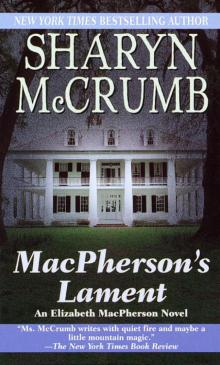 Elizabeth MacPherson 07 - MacPherson’s Lament
Elizabeth MacPherson 07 - MacPherson’s Lament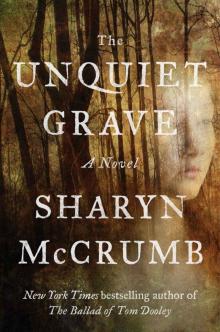 The Unquiet Grave: A Novel
The Unquiet Grave: A Novel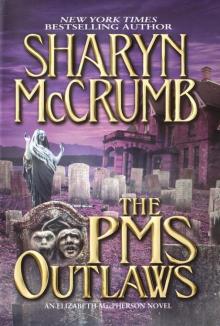 The PMS Outlaws: An Elizabeth MacPherson Novel
The PMS Outlaws: An Elizabeth MacPherson Novel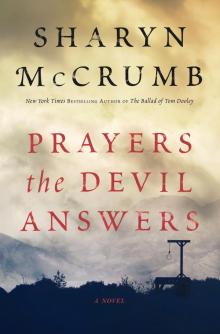 Prayers the Devil Answers
Prayers the Devil Answers Paying the Piper
Paying the Piper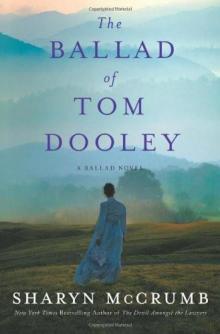 The Ballad of Tom Dooley: A Ballad Novel
The Ballad of Tom Dooley: A Ballad Novel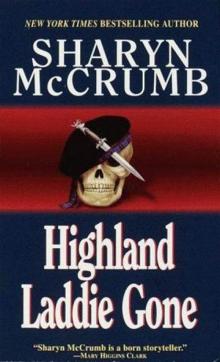 Highland Laddie Gone
Highland Laddie Gone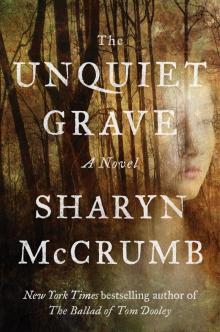 The Unquiet Grave
The Unquiet Grave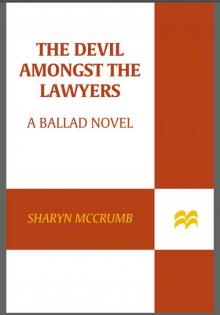 The Devil Amongst the Lawyers
The Devil Amongst the Lawyers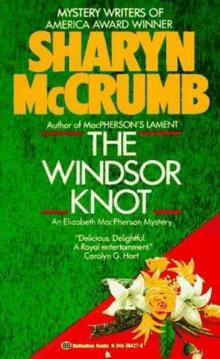 The Windsor Knot
The Windsor Knot The Hangman's Beautiful Daughter
The Hangman's Beautiful Daughter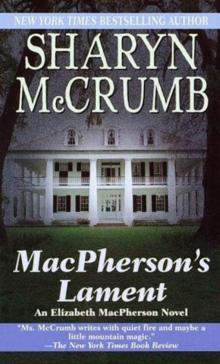 MacPherson's Lament
MacPherson's Lament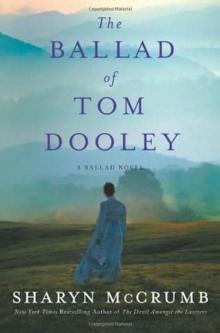 The Ballad of Tom Dooley
The Ballad of Tom Dooley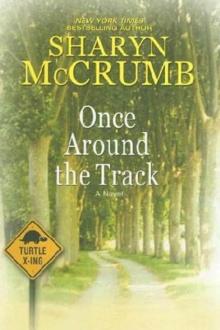 Once Around the Track
Once Around the Track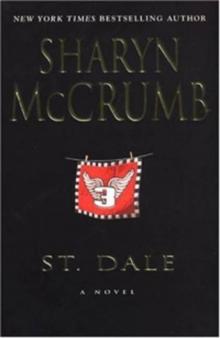 St. Dale
St. Dale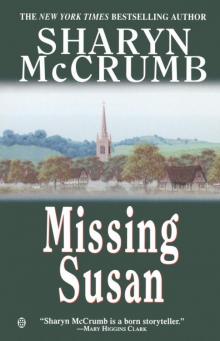 Elizabeth MacPherson 06 - Missing Susan
Elizabeth MacPherson 06 - Missing Susan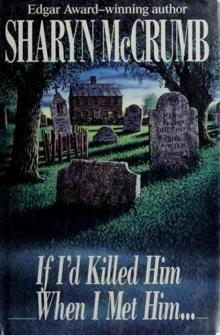 If I'd Killed Him When I Met Him…
If I'd Killed Him When I Met Him…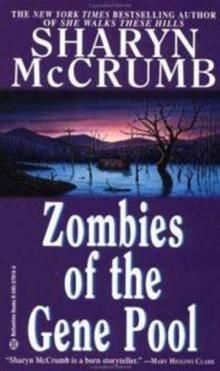 Zombies of the Gene Pool
Zombies of the Gene Pool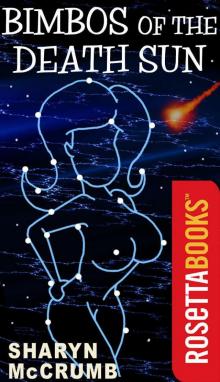 Bimbos of the Death Sun
Bimbos of the Death Sun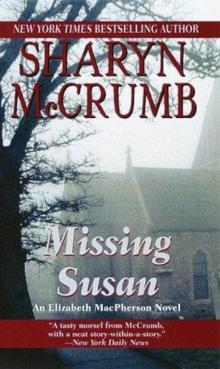 Missing Susan
Missing Susan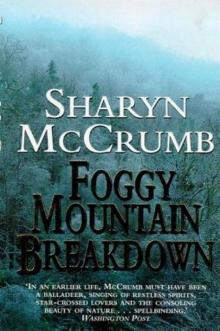 Foggy Mountain Breakdown and Other Stories
Foggy Mountain Breakdown and Other Stories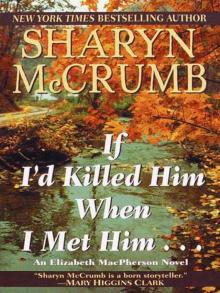 If I'd Killed Him When I Met Him
If I'd Killed Him When I Met Him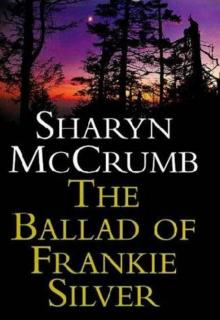 The Ballad of Frankie Silver
The Ballad of Frankie Silver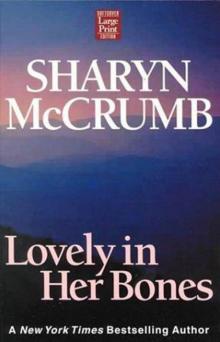 Lovely In Her Bones
Lovely In Her Bones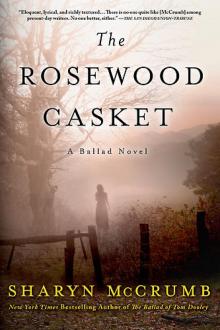 The Rosewood Casket
The Rosewood Casket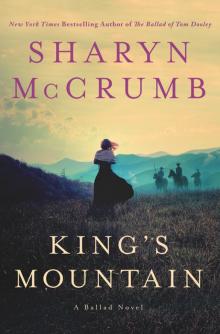 King's Mountain
King's Mountain